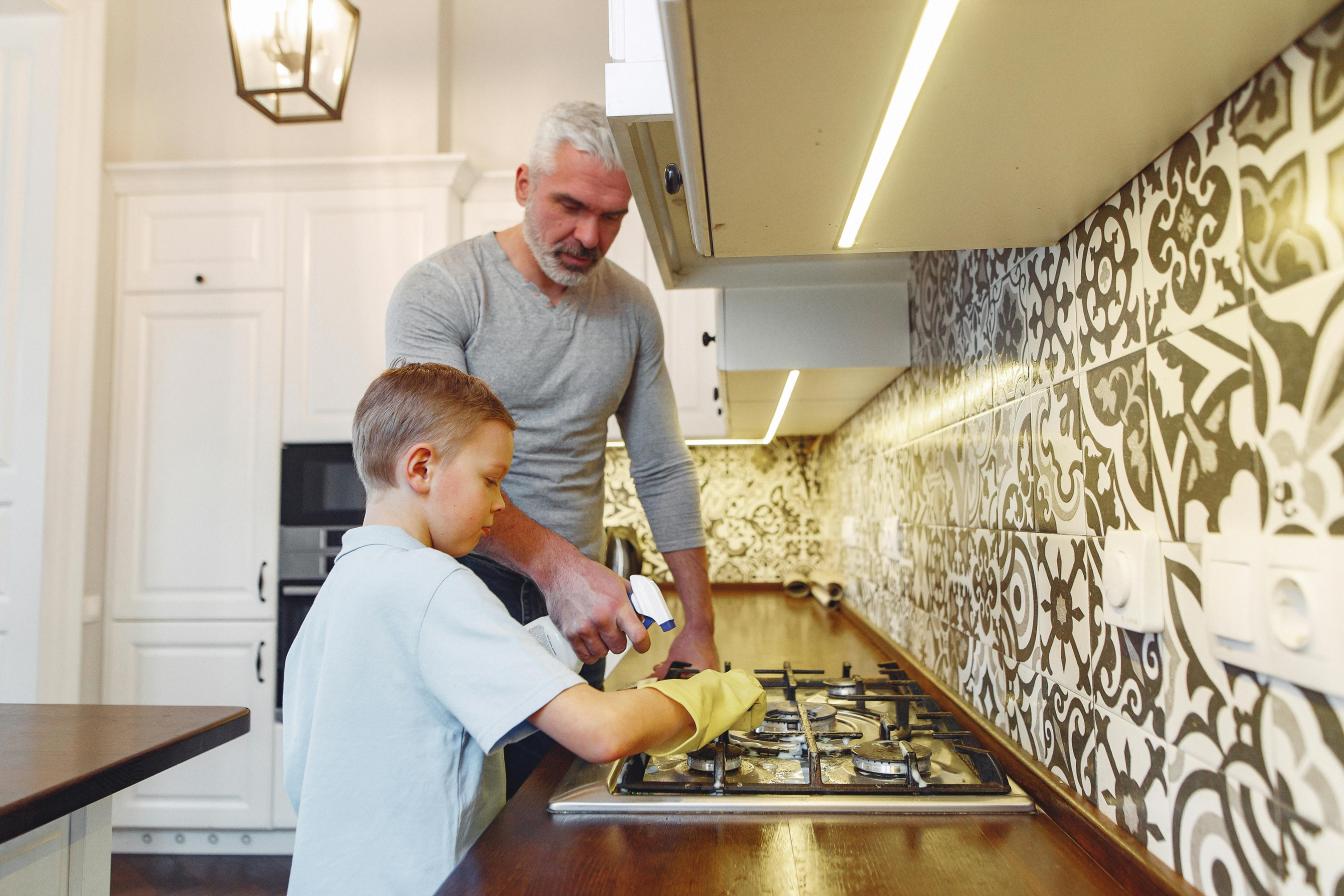
How to Develop Good Habits: A Comprehensive Guide
Building good habits can transform your life, leading you toward the path of success and personal satisfaction. Whether you’re aiming to excel in your studies, develop a healthier lifestyle, or improve your productivity, understanding how to develop and maintain good habits is crucial.
How to Build Good Habit and Break Bad One
Building good habits and breaking bad ones require a strategic approach. From my personal experience, the first step is acknowledging the need for change. Reflect on your current habits, identify the ones that are detrimental, and replace them with positive behaviors.
For example, I used to have difficulty with procrastination. I realized that setting small, achievable goals and rewarding myself for completing them helped me stay motivated and break my procrastination habit. A gradual enhancement is needed. you start small and gradually increase the difficulty of the task.
Breaking harmful habits might be difficult, but not impossible. Accuracy and determination are important. I found that by setting reminders and utilizing habit-tracking apps, I could monitor my progress and stay committed. Remember that endurance and patience go a long way.
How to Develop Good Habits Essay
Writing an essay on developing good habits allows you to explore the theoretical and practical aspects of habit formation. To start, introduce the importance of habits in achieving long-term goals. You can then analyze various strategies and psychological principles that facilitate habit formation.
Include real-life examples to support your ideas. For instance, discussing how my commitment to regular exercise improved my physical health makes the essay relatable. Furthermore, examining scientific research on brain plasticity and reward systems adds depth to the discussion.
In the conclusion, emphasize the role of consistency and mindfulness in habit development. Summarize the key point and leave the reader with actionable insight they can apply to their own lives.
How to Develop Good Habits in a Child
Developing good habits in children is crucial for their growth and development. From my experience as a parent, leading by example is one of the most effective strategies. Children imitate behaviors, so demonstrating good habits in your daily life can positively influence them.
Begin with tiny, doable chores. you can encourage your childrens to brush their teeth twice daily, clean up their toys, and finish their homework on time. Praise and reward them for their efforts, reinforcing the positive behavior.
Also, develop a routine. Consistency helps children understand and internalize good habits. I found that setting regular meal times, study hours, and playtime created a structured environment conducive to habit formation.
How to Form a Habit: Psychology
The psychology of habit formation is a fascinating subject. At its core, habit formation involves the repetition of a behavior in a consistent context, leading to automaticity. According to Charles Duhigg’s “The Power of Habit,” habits consist of a cue, routine, and reward.
In my journey, understanding this framework helped me create new habits. Identify a cue that triggers the desired behavior and choose a reward that motivates you. For example, I decided to make reading a daily habit. My cue was finishing dinner, the routine was reading for 30 minutes, and the reward was a piece of dark chocolate.
Understanding the psychological basis for habits also highlights the importance of managing stress and emotions. Habits often form as coping mechanisms, so addressing underlying emotional triggers can facilitate positive habit formation.
Good Habits for Students
As a former student, I realized the importance of developing good habits early on. Time management, discipline, and a growth mindset are critical for academic success. Create a study schedule that allocates time for reading, assignments, and revision.
Additionally, prioritize physical and mental well-being. Incorporate regular exercise, good food, and adequate sleep into your regimen. I found that these habits not only improved my health but also boosted my cognitive functions and productivity.
Creating study groups might also be helpful. Discussing topics with peers and engaging in group activities fosters a collaborative learning environment and keeps you motivated.
Developing Good Habits PDF
Compiling a PDF on developing good habits can serve as a valuable resource. Start by outlining the importance of habits and their impact on personal and professional growth. Include sections on the psychology of habit formation, strategies for developing good habits, and methods for breaking bad ones.
Incorporate interactive elements like habit trackers and self-assessment quizzes. Share practical tips and real-life examples to make the content relatable. For instance, my experience with habit tracking apps and the 21/90 rule can provide readers with actionable insights.
Moreover, providing downloadable templates for goal setting and progress monitoring can help readers apply the concepts learned. Ensure the PDF is well-organized, visually appealing, and easy to navigate.
How to Maintain Good Habits
Maintaining good habits is often more challenging than forming them. For me, consistency and accountability were essential. Setting daily reminders and using habit-tracking apps kept me on track.
Also, it’s important to stay motivated. Regularly revisiting your goals and the reasons behind them can reignite your passion. For example, I keep a vision board to remind myself of the long-term benefits of my habits.
Lastly, be forgiving of setbacks. Life can be unpredictable, and missing a day is not the end of your progress. Reflect on what caused the lapse, adjust your strategy if necessary, and get back on track. Remember, perseverance is key.
How to Create a Good Habit: “Atomic Habits”
James Clear’s “Atomic Habits” significantly influenced my understanding of habit formation. He emphasizes starting with small, manageable changes that build momentum over time. For example, if your goal is to exercise regularly, then start with just five minute a day and gradually increase the duration.
Clear also introduce the concept of “habit stacking,” where you link a new habit with an existing one. I implemented this by incorporating a short meditation session after my morning coffee, seamlessly integrating it into my routine.
Creating a good habit also involves designing your environment to support your goals. From my experience, removing distractions and setting up visual cues can significantly influence habit adoption.
How to Build Good Habits learning from Reddit Platform
Reddit can be a treasure trove of insights and experiences from people around the world. Communities like r/Habits and r/self improvement offer advice, support, and real-life stories. I often browse these subreddits to gain new perspectives and motivation.
arguably the most valuable feature of Reddit is the sense of community. Engaging in discussions and sharing your progress with others can provide a sense of accountability. I found that participating in monthly challenges and sharing my goals helped me stay committed.
Moreover, Reddit offers numerous resources, from habit-tracking suggestions to book recommendations. It is a platform where you can learn, share, and grow together with like-minded individuals.
How Do We Build Good Habits?
Developing good habits involves more than just willpower. Based on my experience, it requires a structured approach, motivation, and consistency. You should start by identifying the habits you want to develop and their underlying motivations.
Set clear, achievable goals. Instead of generic ambitions like “exercise more,” try for precise, measurable goals like “jog for 20 minutes every day.” Breaking down larger goals into smaller, manageable tasks makes the process less daunting.
Lastly, track your progress and celebrate your achievement. I found that maintaining a journal where I record my daily habits and reflect on my progress helped me stay disciplined and motivated.
What is the 21/90 Rule?
The 21/90 rule is a popular concept in habit formation. It suggests that it takes 21 days to develop a habit and 90 days to make it a permanent lifestyle change. While this timeframe can vary, it’s a helpful guideline to keep in mind.
I applied the 21/90 rule when I started a daily meditation practice. The first 21 days were focused on consistently practicing meditation, while the following 90 days were about making it a part of my lifestyle. By the end, meditation had become a natural part of my routine.
It’s important to note that sticking to the 21/90 rule requires dedication and patience. Keep persevering even when it feels challenging, and remember that consistency leads to lasting change.
How can I strengthen habits?
Building a habit involves several key steps. You should start by choosing a specific behavior you want to adopt. Then, identify a cue that will trigger this behavior. For example, if you want to read every night, your cue could be brushing your teeth.
Next, thing is for you to establish a daily routine. Engage in the desired behavior consistently after the cue. I found that setting a fixed time each day for the habit helped reinforce it. Finally, reward yourself. Positive reinforcement strengthens the habit loop and increases motivation.
Evaluate your progress every other day. I use a habit-tracking app that allows me to visualize my progress and stay accountable. Adjust your strategy if needed, and remember that persistence is essential.
What is the Best Habit to Build?
The best habit to build is one that aligns with your goals and values. For me, regular exercise was a game-changer. It improved my physical health, boosted my energy levels, and enhanced my mental well-being.
Another impactful habit is regular reading. It expands knowledge, stimulates creativity, and enhances cognitive functions. I dedicate 30 minutes every day to reading, and it has significantly enriched my life.
Ultimately, the best habit depends on your personal objectives. Identify the areas where you want to see improvement and choose habits that will help you achieve those goals.
How Can I Improve My Life Habits?
Improving life behaviors is a constant process. Start by doing a self-assessment to discover areas for development. Prioritize the habits that will have the biggest positive impact on your life.
Set realistic goals and work on an action plan. I found that breaking down larger goals into smaller tasks made them more manageable. You should be Track your progress and adjust your strategies if needed.
Seek accountability and support. You should be Sharing your goals with a friend or joining a community with similar objectives. I joined an online fitness group, which kept me motivated and committed to my exercise routine.
How to Break a Bad Habit
You Breaking a bad habit can be challenging but not impossible. You should Start by identifying the trigger that led to the unwanted behavior. Understanding the root cause helps in developing strategies to overcome it.
You should be Replacing the bad habit with a positive alternative. For example, I replaced my habit of snacking on junk food with eating fruits and nuts. This substitution made it easier to resist the temptation.
Seek support and accountability. You should share your goal with someone you can trust and ask for their support. Tracking your progress and celebrating small victories also helps in staying motivated.
For how long would it take to become a habit?
The time it takes to build a habit can vary, but research suggests it typically takes about 66 days for a new behavior to become automatic. However, this can depend on the complexity of the habit and individual differences.
In my experience, some habits took longer to develop, while others became automatic relatively quickly. The key is for you to remain consistent and patient. Even if progress seems slow, because every effort counts.
Remember that difficulties are a normal part of the process. Don’t get discouraged if you miss a day or two. Reflect on what caused the lapse and adjust your approach if needed.
What is meant by the 90/90 rule?
The 90/90 rule is similar to the 21/90 rule but focuses on a more extended period for habit formation. It suggests that consistently practicing a behavior for 90 days establishes a strong foundation for making it a permanent part of your lifestyle.
Applying the 90/90 rule requires dedication and perseverance. In my journey, I used this rule to develop a daily journaling habit. The extended timeframe helped reinforce the behavior and make it a natural part of my routine.
Keep in mind that the 90/90 rule is a guideline, not a strict rule. Focus on consistency and be patient with yourself. The goal is to create lasting change.
How Many Days Does it Take to Leave a Habit?
Breaking a habit can take varying amounts of time, depending on the individual and the habit in question. On average, experts suggest it takes about 21 to 66 days to break a habit.
In my experience, breaking a bad habit required consistent effort and self-awareness. Identifying the triggers and replacing the negative behavior with a positive alternative were crucial steps.
You have to be nice ourselves. Breaking a habit happens gradually. Celebrate tiny accomplishments along the road, and stay focused on your goal. Remember, endurance is key.
How Do I Start a Daily Habit?
Starting a daily habit requires clarity and consistency. Begin by choosing a specific and manageable habit. Avoid vague goals and opt for precise actions, like “meditate for 10 minutes every morning.”
Set a fixed time and place for the habit. Establishing a routine make it easier to integrate the habit into your daily life. I found that setting daily reminders and using a habit-tracking app kept me accountable.
Start small and progressively increase your intensity. For example, if your goal is to exercise, begin with short, manageable sessions and gradually increase the duration. Initially, consistency takes precedence over intensity.
How to Stick to a Good Habit
Sticking to a good habit requires commitment and motivation. Begin by creating clear and measurable goals. Specificity and realism are crucial. I found that breaking down larger goal into smaller goals , manageable tasks made the process less daunting.
Track how you’re doing and reward yourself for achieving milestones. Positive reinforcement strengthens the habit loop and increases motivation. For example, I treat myself to something enjoyable after achieving a weekly target.
Seek accountability. You should Share your goals with someone you trust or join a community with similar objectives. The sense of commitment to others can help you stay consistent and committed.
What Are the 4 Keys to Creating a Habit?
Creating a habit involves four key elements: cue, routine, reward, and belief. The cue triggers the habit, the routine is the behavior, the reward reinforces it, and belief sustains it.
In my experience, identifying a clear cue and reward was essential. For instance, setting an alarm as a cue for my morning workout and rewarding myself with a healthy smoothie created a satisfying habit loop.
Belief, both in the habit’s value and in your ability to stick to it, is equally important. You should cultivate a positive mindset and remind yourself of the long-term benefits. Consistency and self-motivation are crucial.
How Do You Develop Good Learning Habits?
Developing good learning habits involves setting goals, creating a conducive environment, and maintaining consistency. Start by identifying your learning objectives and breaking them down into smaller, manageable tasks.
Make a distinct study area devoid of distractions. I found that having a clean and organized workspace significantly improved my focus and productivity.
Practice an unchanging study plan. Allocate specific time for your studying and stick to them. Developing a routine helps reinforce the habit and makes learning a regular part of your day.
How to Develop Good Habits in Children
Developing good habits in children requires patience, consistency, and positive reinforcement. Lead by example. Children are more likely to adopt good habit if they see them in action.
Begin with tiny, doable chores. you should encourage your children to brush their teeth twice daily, clean up their toys, and finish their homework on time. Praise and reward them for their efforts.
Establish a routine. Consistency helps children understand and internalize good habits. I found that setting regular meal times, study hours, and playtime created a structured environment conducive to habit formation.
How to Develop Good Habits Essay
Writing an essay on developing good habits allow you to explore the theoretical and practical aspect of habit formation. Start by introducing the importance of habits in achieving long-term goals. Analyze various strategies and psychological principles that facilitate habit formation.
Additionally, include real-life examples to illustrate your points. For instance, discussing how my commitment to regular exercise improved my physical health makes the essay relatable. Examining scientific research on brain plasticity and reward systems adds depth.
In the conclusion, emphasize the role of consistency and mindfulness in habit development. Summarize the key point and leave the reader with actionable insight they can apply to their own lives.
How Can We Inculcate Good Habits?
Inculcating good habits involves setting an example, providing guidance, and offering positive reinforcement. Whether it’s for yourself or others, start by demonstrating the desired behavior.
Set clear expectations and communicate the benefits of the habit. In my experience, understanding the “why” behind a habit increases motivation. You should use positive reinforcement, like praises and rewards, to strengthen the behavior.
Consistency is crucial. Reinforce the habit by integrating it into daily routines. Reflect on progress regularly and adjust the approach if needed. Cultivating good habits requires patience and persistence.
Frequently Asked Questions
- For how long would it take to become a habit?
- On average, it take about 66 days for a new behavior to become automatic, though this can vary depending on the individual and the habit.
- What is the 21/90 rule?
- It suggests that it take humans 21 days to develop a habits and 90 days for you to make it a permanent lifestyle change.
- What are the four keys to creating a habit?
- Cue, Routine, Reward, and Belief.
- How can parents develop good habits in their children?
- Lead by example, start with small tasks, establish a routine, and use positive reinforcement.
- Why is it hard to break a bad habit?
- Bad habits often form as coping mechanisms and are reinforced by reward systems in the brain. Addressing emotional triggers can help break them.
- What is “habit stacking”?
- A strategy where you link a new habit with an existing one to make it easier for you to adopt.
- How can I stick to a good habit?
- Set clear goals, track your progress, and seek accountability from friends or communities.
- What is meant by the 90/90 rule?
- It suggests practicing a behavior consistently for 90 days to establish a strong foundation for making it a permanent part of your lifestyle.
- How can I improve my life habits?
- Conduct a self-assessment, set realistic goals, create an action plan, and seek accountability.
Conclusion
In conclusion, building good habits and breaking bad ones is a journey that requires commitment, consistency, and self-awareness. By understanding the psychologies of habit formation and employing practical strategies, you can transform your life for the better. Whether you’re a student, a parent, or someone seeking personal growth, developing and maintaining good habits is your key to achieving long-term success and fulfillment. Stay patient, stay committed, and remember that every small step counts.
Citations to this article:
- How to Build New Habits That Stick [The Ultimate Guide], Develop Good Habits, November 29, 2021, August 28, 2024
- Katy Milkman, How to build a habit in 5 steps, according to science, CNN, September 22, 2023, August 28, 2024
- WomensMedia, The How-To Guide To Creating Good Habits And Breaking Bad Ones, Forbes, March 25, 2022, August 28, 2024
- Tara Parker-pope, How to Build Healthy Habits, The New York Times, February 18, 2020, August 28, 2024
Post Disclaimer
The information contained in this post is for general information purposes only. The information is provided by How to Build Good Habits: A Comprehensive Guide and while we endeavour to keep the information up to date and correct, we make no representations or warranties of any kind, express or implied, about the completeness, accuracy, reliability, suitability or availability with respect to the website or the information, products, services, or related graphics contained on the post for any purpose.




